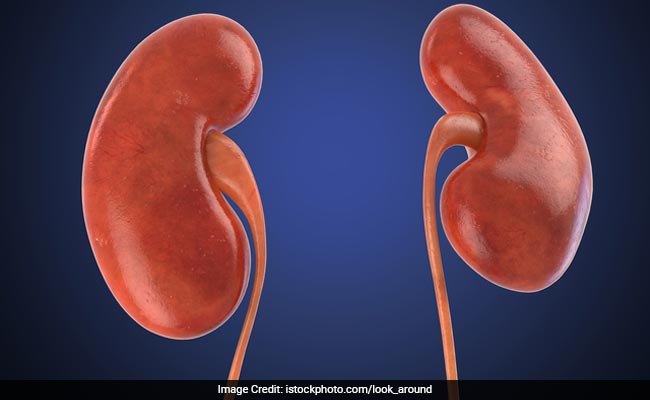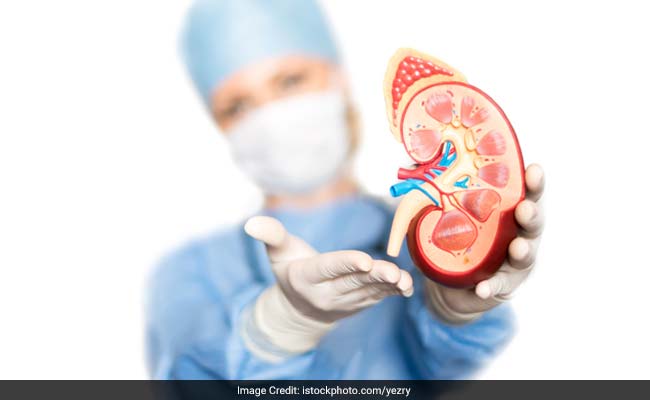Kidney failure
What is it?
The main function of the kidneys is to eliminate excess fluid and waste material from the blood. When the kidneys lose this filtering ability, dangerous levels of fluid and waste accumulate in the body leading to a condition known as kidney or renal failure. This may be due to various factors including infections, autoimmune diseases, and other endocrine disorders, cancer, and toxic chemicals. Kidney failure usually occurs in the late stages of the disease processes. Once kidney failure occurs, it requires immediate management and even then prognosis is often not satisfactory unless kidney transplantation is done.
What are the symptoms?
The symptoms and signs of kidney failure depend upon the type of failure. In acute kidney failure, the patient may have oliguria (reduced urine output) along with generalised swelling (oedema) of the body together with high blood pressure. Sometimes there may be blood in the urine. In the early stages of chronic kidney disease, the patient may merely have increasing fatigue and tiredness and symptoms like nocturia (increased frequency of urination at night). Vomiting, oedema and high blood pressure eventually develop. There is also loss of appetite. Other symptoms depend upon the cause of the failure. For example, if there are kidney stones, then there may be excruciating groin pain or if there is severe haemorrhage or diarrhoea there may be signs of shock. Complications in renal failure include pulmonary oedema (presence of fluid in the lungs), severe sustained increase in blood pressure, acidosis, hyperkalaemia (increased level of potassium in the blood), and infection. If untreated, the last stage of kidney failure is almost invariably fatal.
What are the types?
There are two main types of kidney failure: Acute renal failure (ARF) or Acute kidney injury (AKI)This is characterised by a sudden impairment of renal function marked by rapid, and steadily increasing accumulation of toxic products in the blood, normally excreted by the kidneys. The causes of acute kidney failure include:Factors that interfere with renal blood flow (for example: fluid and electrolyte depletion, haemorrhage, severe infections, cardiac or liver failure, heat stroke, fluid depletion due to burns).Factors that cause obstruction (for example enlarged prostate and kidney stones can also lead to acute kidney failure).Other causes are factors that impair the renal function directly (for example acute tubular injury or acute glomerulonephritis, a disorder involving increased swelling and inflammation of filtering cells of the kidney).Chronic renal failure (CRF) or Chronic kidney disease (CKD)This is characterised by a slow, gradually progressive irreversible impairment of the excretory and regulatory functions of the kidneys over period of more than 3 months to years. The causes of CKD include:Chronic glomerulonephritis, a disorder involving swelling and inflammation of filtering cells of the kidneyChronic infection like tuberculosisAnomalies of the kidneys that are present since birth Vascular disease like hypertensionEndocrine disease like diabetesObstructive processes in the kidneys such as kidney stonesNephrotoxins (toxic chemicals that affect the kidneys)
How is the diagnosis made?
Urine examination is done to determine the presence of protein, sugar, casts and crystals, pH and specific gravity and the quantity of sodium. This gives an idea as to the cause of the failure. Blood tests include tests of renal function like:Blood urea nitrogenSerum creatinineSerum electrolytesCreatinine clearance or more commonly, estimated glomerular filtration rate (GFR), an important index of renal function used to estimate the level of kidney function in CKD patients.Blood counts and the haemoglobin levels are also useful. An ultrasound of the abdomen or a CT-scan needs to be taken to assess kidney size with grossly shrunken kidneys indicating advanced chronic kidney disease. End-stage renal disease is diagnosed when blood tests consistently show persistently elevated levels of urea and creatinine with estimated level of kidney function being less than 10% of normal, a sign that kidney function has been severely and permanently damaged.
What is the treatment?
In acute kidney failure, general treatment measures include avoiding drugs that require renal excretion, strict monitoring of daily weight, fluid intake and output, high carbohydrate and low-protein diet, essential amino acid replacement and at least 100gms of glucose per day, decreased intake of salt and potassium, vitamin supplements, prevention of injury or infection, electrolytes monitoring, and monitoring of vital signs, cardiac status, and mental status. Peritoneal or haemodialysis is the treatment of choice when other measures fail. Drugs are used to reduce the blood pressure; diuretics (drugs that increase urine output) are used in cases of fluid overload, intended to improve the urine output and also assist in blood pressure control. Antibiotics may be needed to treat associated infections while avoiding potential kidney toxic antibiotics and adjusting the dosage of administered medications based on the level of kidney function. In CKD, general treatment measures include a diet low in sodium, potassium, and phosphate, but high in calories and supplemented with essential amino acids. Other measures include balanced fluid intake, and monitoring weight changes, vital signs, electrolyte balance, cardiac and mental status.Drug therapy: This includes antihypertensives for hypertension, diuretics for oedema and hypertension, phosphate binders for hyperphosphataemia (increased phosphate levels in the body), antibiotics, anticonvulsants for seizures, antiemetics (drugs that prevent vomiting) for nausea, laxatives for constipation, calcium, iron, and vitamin supplements.Dialysis: Peritoneal dialysis or haemodialysis is often required for end-stage disease.Surgery: Kidney transplantation is the solution for several patients as dialysis is often a measure that cannot be done indefinitely. The results of transplantation are now extremely good with improved five-year survival rates, excellent long-term outcomes and quality of life.
What are the prevention?
Prevention of the causative factors, wherever possible, may help in preventing the development of the disease. Control of blood sugar in diabetics is of great importance. After the disease has developed, specific drug therapy based on the cause of kidney disease (steroids and certain immunosuppressive medications prescribed for certain types of glomerulonephritis) may help revert the disease progression while strict blood pressure (BP) control (target BP goal <130/80mmHg) and avoidance of exposure to potential kidney toxic medications (like common pain medications Voveran, nimulid and brufen) helps to delay the progression of CKD over period of years. Lastly, healthy lifestyle with increased physical activity and healthy diet, strict monitoring of cholesterol and avoidance of smoking goes a long way in maintaining the cardiovascular health of the person, especially in view of increased incidence of heart disease in patients with CKD.
Kidney failure News More News
- Cycling At Moderate Intensity Transforms Heart Health Of Patients With Kidney Failure: Study
- Breathing Dirty Air May Lead To Kidney Failure: Study
- Depression linked to kidney failure risk
- Marital status and kidney transplant
- Doubling dialysis frequency helps patients
- Pain relievers and risk of kidney failure
- Dialysis patients can live longer
................... Advertisement ...................
................... Advertisement ...................
................... Advertisement ...................
................... Advertisement ...................



























